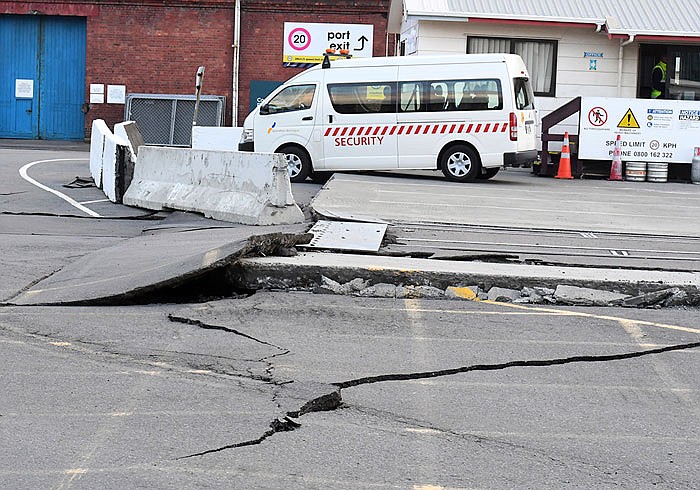WELLINGTON, New Zealand (AP) - A powerful earthquake struck New Zealand's South Island early Monday, killing at least two people, causing damage to buildings and infrastructure, and prompting emergency services to warn people along the coast to move to higher ground to avoid tsunami waves.
The magnitude-7.8 earthquake struck just after midnight in a mostly rural area that's dotted with small towns. Near the epicenter, it opened up snaking fissures in roads and triggered landslides.
It caused damage in Wellington, the capital, more than 120 miles to the north and was also strongly felt in the city of Christchurch to the south. Residents said the shaking went on for about three minutes, and was followed by a number of strong aftershocks.
Police said one person died in the small coastal town of Kaikoura and another in Mt. Lyford, a nearby ski resort.
The quake completely cut off road access to Kaikoura, said resident Terry Thompson, who added electricity and most phones were also down in the town of 2,000, a popular destination for tourists taking part in whale-watching expeditions.
Thompson was out of town but managed to reach his wife by cellphone during the night before her phone died.
"She said the glass exploded right out of the double ranch-slider," he said. "The neighbor's chimney was gone, there were breakages and things smashed everywhere."
His wife helped a 93-year-old neighbor and a tourist into her car and drove to higher ground, he said.
"They stayed in the car all night but couldn't sleep," Thompson said. "They're all very, very tired and concerned about the state of their property."
Prime Minister John Key said waves of about 6 feet hit the coast but the tsunami threat had since been downgraded to coastal warnings.
He said authorities had no reason to believe the death toll would rise above the two reported fatalities.
"On the very best information we have at the moment, we think it's only likely to be two. But of course there are isolated parts of the country which we don't have perfect eyes on, so we can't be 100 percent sure," he said.
Key said officials had decided not to declare a national emergency because the nation's regions were able to adequately cope with the situation.
The quake temporarily knocked out New Zealand's emergency call number, 111, police reported. In Wellington, it collapsed a ferry loading ramp, broke windows and caused items to fall from shelves. It also forced hundreds of tourists onto the streets as hotels were evacuated.
Authorities in Wellington were urging people who work in the center of the city to stay home on Monday. City officials said that some large buildings were showing signs of structural stress, and the quake would likely have caused a mess in some buildings. The city's suburban rail network was shut while crews checked tracks, bridges and tunnels.
The quake brought back memories of the magnitude-6.3 earthquake that struck Christchurch in 2011, destroying much of the downtown area and killing 185 people. That quake was one of New Zealand's worst disasters, causing an estimated $25 billion in damage.
Although the latest quake was stronger, its epicenter was deeper and much farther from major urban areas. Location, depth and other factors beyond magnitude all contribute to the destructive power of an earthquake.
New Zealand's Ministry of Civil Defence and Emergency Management reported that a tsunami wave struck at about 1:50 a.m. and warned residents living in low-lying areas anywhere along the country's east coast to move to higher ground.
There was confusion about the tsunami threat throughout the morning. The ministry initially said there was no threat but later wrote on Twitter "situation has changed - tsunami is possible" before reporting that a tsunami had hit.
The quake was centered 57 miles northeast of Christchurch, according to the U.S. Geological Survey. The USGS initially estimated it had a magnitude of 7.4 before revising it to 7.8.
It said the quake struck at a depth of 23 kilometers 14 miles, after initially putting the depth at six miles. Earthquakes tend to be more strongly felt on the surface when they are shallow.

